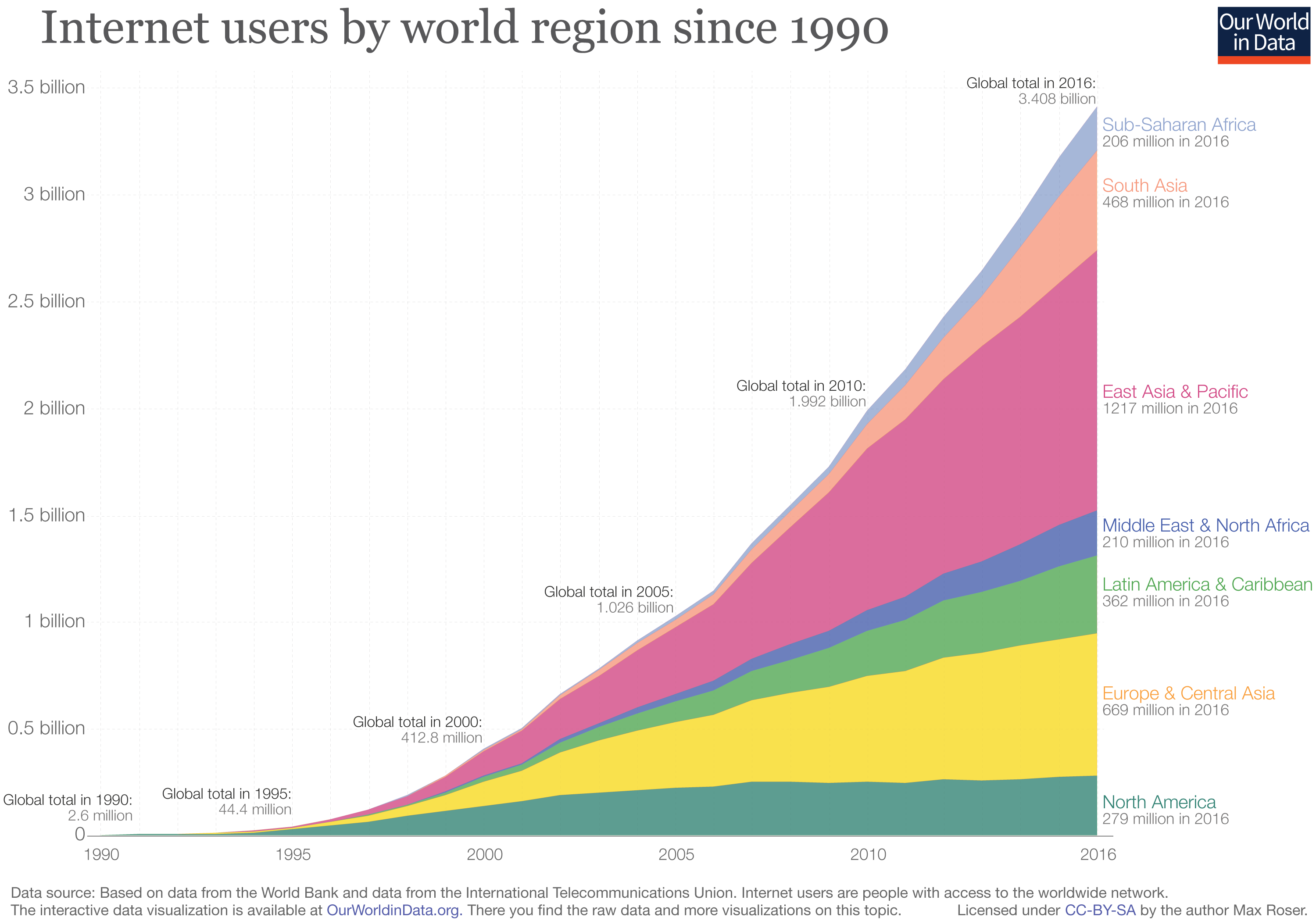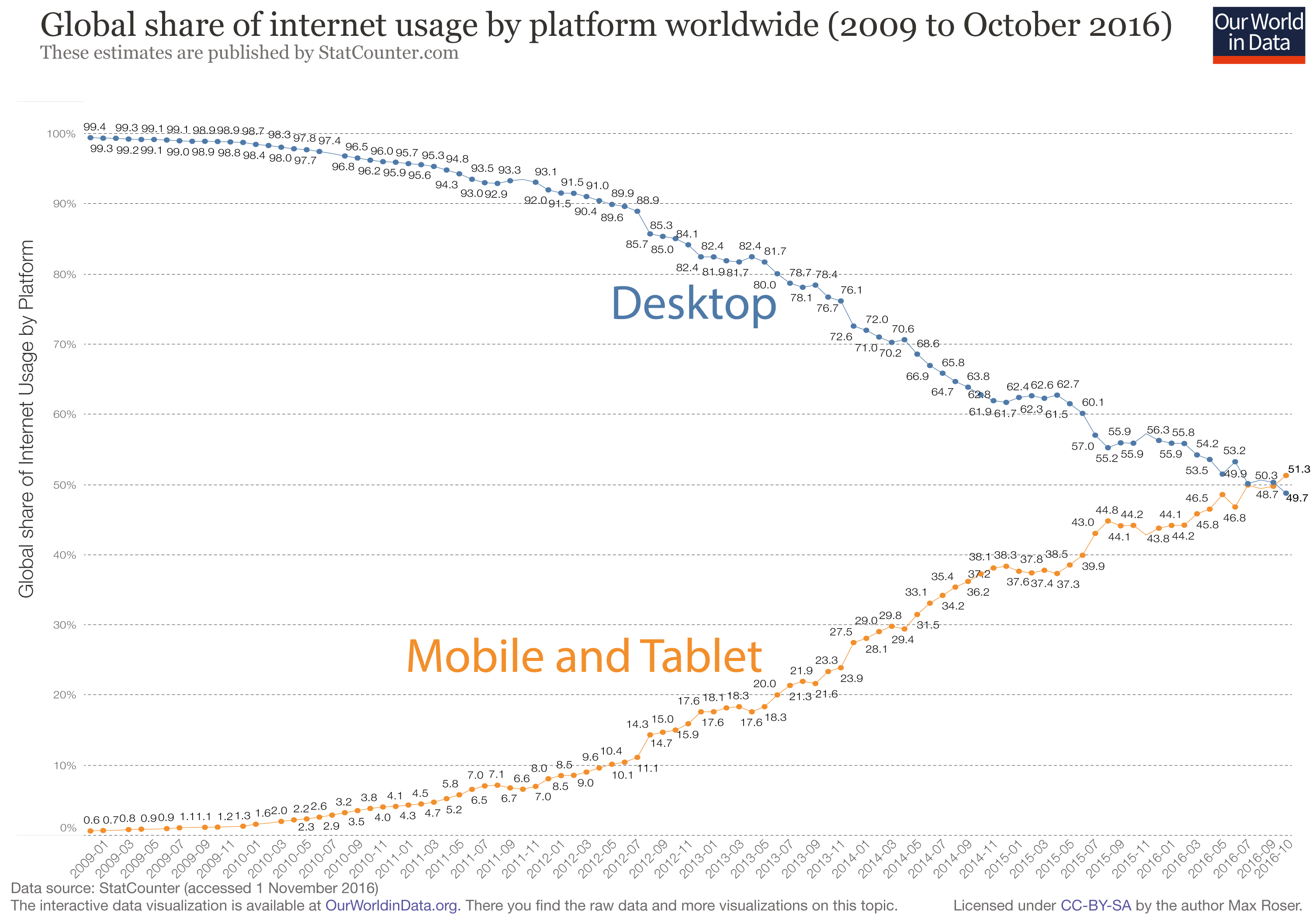Have you ever stopped to think about the vast amount of information shaping our world? It's almost overwhelming, that, is that not so? From how tall people are across different countries to the real cost of making clean energy, there's a huge story unfolding all around us. Knowing where to find reliable, clear facts can feel like quite a task, especially when you're looking for answers about big global questions. This is where a resource like Our World in Data truly shines, offering a way to make sense of some pretty big numbers and trends.
Our World in Data, you see, gathers and presents information on some of the biggest problems facing humanity. It helps us see the bigger picture, giving us a clearer view of progress, challenges, and what changes are happening. It's a place where you can get a good sense of how things are going, whether we're talking about health, the environment, or how economies are shifting. This kind of access to facts is very important for anyone who wants to really understand the world we live in.
The information it provides helps us understand so much. For instance, it can show us how much renewable energy costs have changed, or what the average height of people is in different places. It even sheds light on serious topics like mental health globally. This resource is, in a way, like a big window into the state of the world, helping us all become a bit more informed about what's going on around us.
Table of Contents
- What is Our World in Data?
- Seeing Height Across the Globe
- The Changing Face of Energy
- Looking at Mental Health Globally
- Past Insights Shaping Our Present
- Social Media: Its Effects and Our Concerns
- Why This Data Matters to Us All
- Frequently Asked Questions
- A Look Ahead
What is Our World in Data?
Our World in Data is, you know, a very helpful online publication that makes data and research on the world's largest problems very easy to get. It's built by a team of researchers at the University of Oxford. Their goal is to make knowledge about global changes accessible, so anyone can use it to understand how the world is changing. It covers a really wide range of topics, from health and poverty to climate change and education. They gather information from many different sources, making sure it's presented clearly and accurately, which is pretty good for anyone wanting solid facts.
The project aims to show how things are going, to spot problems, and to see where progress is being made. It's not just about showing numbers; it's about telling stories with those numbers. For example, they might show how childhood mortality has fallen over decades, or how access to clean water has improved. This approach helps people get a better grip on complex global issues, making the data feel much more real and, you know, important.
Our World in Data is independent, and it works to give a clear, evidence-based picture of the world. It’s a bit like a public library of global facts, always there for anyone who wants to look deeper into the big challenges and successes humanity faces. The World Economic Forum, for instance, is an independent international organization that works to improve the state of the world by bringing together business, political, academic, and other leaders. This shows a similar spirit of trying to make things better by getting people informed and working together, which is something Our World in Data also supports through its open data.
- Kat Von D And
- Asbury Park Boardwalk
- Brett Favre To Brett Favre
- Dog Pool Deadpool
- Daves Hot Chicken Photos
Seeing Height Across the Globe
One of the interesting things Our World in Data offers is information on average height for countries and the world. This might seem like a small detail, but it actually tells us quite a bit about health and living conditions. For example, in 2010, the mean height for males was 178.4 cm, with a standard deviation of 7.6 cm. This kind of specific detail helps us see how much variation there is, and it’s very clear.
According to Our World in Data, the average adult height for a person from a healthy population is 169.8 cm. This figure gives us a kind of benchmark, you know, a general idea of what's typical when people have good nutrition and health care. It's a bit like seeing a standard to compare against, which is pretty useful.
When we look at a random sample of 507 active adults, we can use this data to see if our sample fits what Our World in Data suggests. This kind of comparison helps researchers and health experts understand local populations better. It’s a practical way to use global data to check local situations, and it really shows how these numbers can be put to good use.
The Changing Face of Energy
Research from Our World in Data shows that the cost of renewable energy has fallen quite a bit since 2010. This is a truly significant point, you know, for the planet. This decrease in price is vital for getting renewable energy adopted quickly and widely. When clean energy becomes cheaper, more countries and communities can afford to switch away from older, more polluting ways of getting power.
The current energy transition is, as a matter of fact, powered by the realization that avoiding the catastrophic effects of climate change requires a reduction in greenhouse gas emissions. Our World in Data helps illustrate this urgent need by showing the trends in energy production and consumption. It’s not just about the falling costs, but also about the increasing efficiency and availability of these green technologies.
Seeing these trends laid out clearly helps people understand that making the switch to cleaner energy is not just a dream, but something that is actually happening and becoming more possible every day. It gives us, you know, a lot of hope for a future with less pollution and a more stable climate. This information helps us all push for bigger changes.
Looking at Mental Health Globally
In their entries on mental health and substance use, Our World in Data gives an extensive overview of the global data on prevalence, disease burden, mortality, and drivers of this group of disorders. This is a very important area, as mental health affects so many lives around the world. Having this kind of detailed, global view helps health organizations and governments understand the scale of the challenge.
They look at how common certain conditions are, how much they impact people's lives, and sadly, how many lives are lost because of them. They also explore what causes these issues, which is, you know, really key for finding good solutions. This information is very helpful for designing better support systems and treatments.
It’s a topic that, you know, needs a lot of careful attention, and Our World in Data provides a solid foundation of facts. This allows for more informed discussions and, hopefully, better policies to help those struggling with mental health issues. It really helps bring these often-hidden problems into the light for everyone to see.
Past Insights Shaping Our Present
The data they present sometimes comes from research by economic historians like Michael Huberman and Chris Minns. These experts have brought together evidence from historical records, national accounts, and other sources. This means that Our World in Data isn't just about what's happening now; it also gives us a look at how things have changed over long periods of time.
Understanding history is, you know, very important for understanding where we are today. For instance, seeing how economies have grown or shrunk in the past can help us make better decisions for the future. It’s a bit like learning from experience, but on a global scale, which is quite useful.
This historical data helps to show long-term trends that might not be obvious if you only look at recent years. It gives a deeper context to current events and challenges, allowing for a richer understanding of, say, economic development or social progress. It truly builds a picture over time.
Social Media: Its Effects and Our Concerns
Fast changes like those brought about by social media always spark fears about possible negative effects. This is a very natural reaction, you know, when something new comes along that changes how we live and connect. People naturally wonder what the downsides might be, and that's fair enough.
Specifically in the context of social media, a key question is whether these platforms are having a bad impact on our mental well-being or our societies. Our World in Data might explore studies and information related to these concerns, looking at how social media use correlates with things like loneliness, anxiety, or even political polarization. It’s a very current and important discussion.
By presenting data on these topics, Our World in Data helps us move beyond just fears and instead look at what the evidence suggests. This way, we can have more informed conversations about how to use these powerful tools responsibly and, you know, how to lessen any harmful effects they might have. It really helps us think about these things in a clearer way.
Why This Data Matters to Us All
The information provided by Our World in Data is truly valuable for so many reasons. It helps us see past our own experiences and understand the bigger picture of human progress and challenges. When we talk about, say, global poverty or climate change, having solid numbers helps us move from guesswork to informed action. It’s a bit like having a map to guide us.
It also helps people in different fields. Researchers use it to build new studies, policymakers use it to make better decisions, and even students use it to learn about the world. It provides a common set of facts that many people can agree on, which is, you know, very important for meaningful discussions.
This resource encourages us to think critically about the world and to base our opinions on facts, not just feelings. It helps us see the progress that has been made in many areas, which can be very encouraging, and also highlights where more work is needed. To learn more about data insights on our site, you can visit our homepage. It's a powerful tool for anyone who cares about making the world a better place.
Frequently Asked Questions
What kind of data does Our World in Data provide?
Our World in Data provides a very wide range of global information. This includes facts on things like health, for example, average height for countries and the world, and also data on mental health and substance use. They also cover energy, showing how the cost of renewable energy has changed. You can also find information on economic trends and even the effects of social media. It's, you know, a very broad collection of important facts.
How has the cost of renewable energy changed according to Our World in Data?
According to research from Our World in Data, the cost of renewable energy has fallen quite a bit since 2010. This decrease in price is very important for getting renewable energy adopted quickly and widely across the globe. It means that, you know, cleaner energy sources are becoming much more affordable for many countries and communities, which is a really good sign for the future of our planet.
What are some key health insights from Our World in Data?
Our World in Data offers several key health insights. For example, it provides information on average adult height, noting that for a person from a healthy population, it is 169.8 cm. They also give a very extensive overview of global data on mental health and substance use, looking at how common these issues are, how much they impact people, and what causes them. This helps us get a good sense of global health trends. You can also find more details on related topics here.
A Look Ahead
Our World in Data continues to be a truly important resource for anyone wanting to understand the big picture of global change. It helps us keep track of progress and challenges, providing a clear, fact-based view of the world. By making complex data easy to get, it empowers people to learn, discuss, and, you know, work towards a better future. It's a resource that keeps growing and updating, always aiming to give us the most current and relevant insights. It’s worth checking in regularly to see what new information they’ve shared.
For more detailed information and to explore the data yourself, you can visit the official Our World in Data website. It's a place where you can really dig into the numbers and see the stories they tell.
Related Resources:
Detail Author:
- Name : Ryann Carroll
- Username : jkoepp
- Email : alehner@yahoo.com
- Birthdate : 2003-01-07
- Address : 1631 Irma Ferry Apt. 293 North Demario, MA 86216
- Phone : 1-352-755-8912
- Company : King PLC
- Job : Tax Preparer
- Bio : Qui enim quia impedit dicta. Velit quos et iusto eum enim. Assumenda sunt qui autem magni amet ullam necessitatibus.
Socials
facebook:
- url : https://facebook.com/pasquale.hauck
- username : pasquale.hauck
- bio : Enim corporis quis rerum sint consectetur cumque.
- followers : 2838
- following : 2736
twitter:
- url : https://twitter.com/phauck
- username : phauck
- bio : Et dolorem magni ea et sed ullam numquam nulla. Ea sed explicabo blanditiis saepe ut sint. Voluptas id ratione et ipsa modi consequatur asperiores.
- followers : 3016
- following : 1969
tiktok:
- url : https://tiktok.com/@pasqualehauck
- username : pasqualehauck
- bio : Aut porro nam voluptatem vitae et commodi.
- followers : 4604
- following : 2318
linkedin:
- url : https://linkedin.com/in/pasquale_hauck
- username : pasquale_hauck
- bio : Rerum ut nobis suscipit sed eum est.
- followers : 2099
- following : 2783



